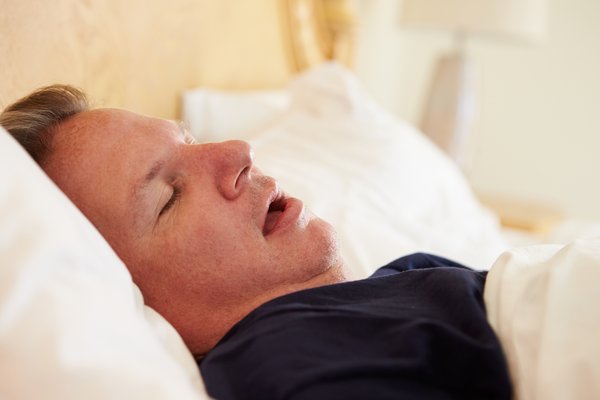Sleep apnea may be linked to brain changes that cause Alzheimer's disease, a new study shows.
Sleep apnea causes breathing to stop and start during the night, most often due to throat muscles relaxing and restricting air flow to the lungs. Alzheimer's gradually destroys memory and thinking skills, eventually leading to the inability to carry out daily tasks. It is the most prominent form of dementia, affecting 6.7 million Americans age 65 and older – a number that the Alzheimer's Association estimates will grow to 13.8 million by 2060 without significant medical breakthroughs.
MORE: Abington teen starts 'little library' to help children of people experiencing homelessness and addiction
"We have come to understand that sleep is really intertwined with the neurological processes driving Alzheimer's and similar dementias," said Dr. Alberto Ramos, research director of the Sleep Disorders Program at the University of Miami. "The idea is that maybe we can identify those at high risk for sleep-related dementia and develop treatment strategies that can help us prevent it."
To explore these possibilities, Ramos and his team used data previously collected for an ongoing study that tracks the health of Latinos. Research has found higher rates of Alzheimer's and other forms of dementia among Latino people compared to white people. More than 2,600 people in study took a one-night sleep apnea test. Ten years later, they had brain imaging to detect signs related to dementia, when they were 50 or older.
The new research, published Wednesday in the journal Neurology, found people with lower nighttime blood oxygen levels had more evidence of damage to small blood vessels in the brain, a contributing risk factor to Alzheimer's. But because Alzheimer's causes brain atrophy, most prominently in the hippocampus, an area of the brain that plays a significant role in memory, it surprised researchers that people with lower oxygen levels and more sleep disruptions had larger hippocampi.
"Even though it appears paradoxical, we think the brain is swelling as a result of damage caused by the low oxygen levels and possibly inflammation," Ramos said.
The swelling over time could cause the hippocampus to atrophy, Ramos said.
The limitations of this study mean scientists cannot draw a direct link between sleep apnea and Alzheimer's and other forms of dementia. But the findings give "credence to the idea that if you treat your sleep apnea, you're probably helping your brain," said Dr. Christian Agudelo, one of the study's co-authors.
Snoring loudly and waking up tired are two of the primary symptoms of sleep apnea. People who think they may have the disorder are advised to consult a health care provider, the Mayo Clinic says.


